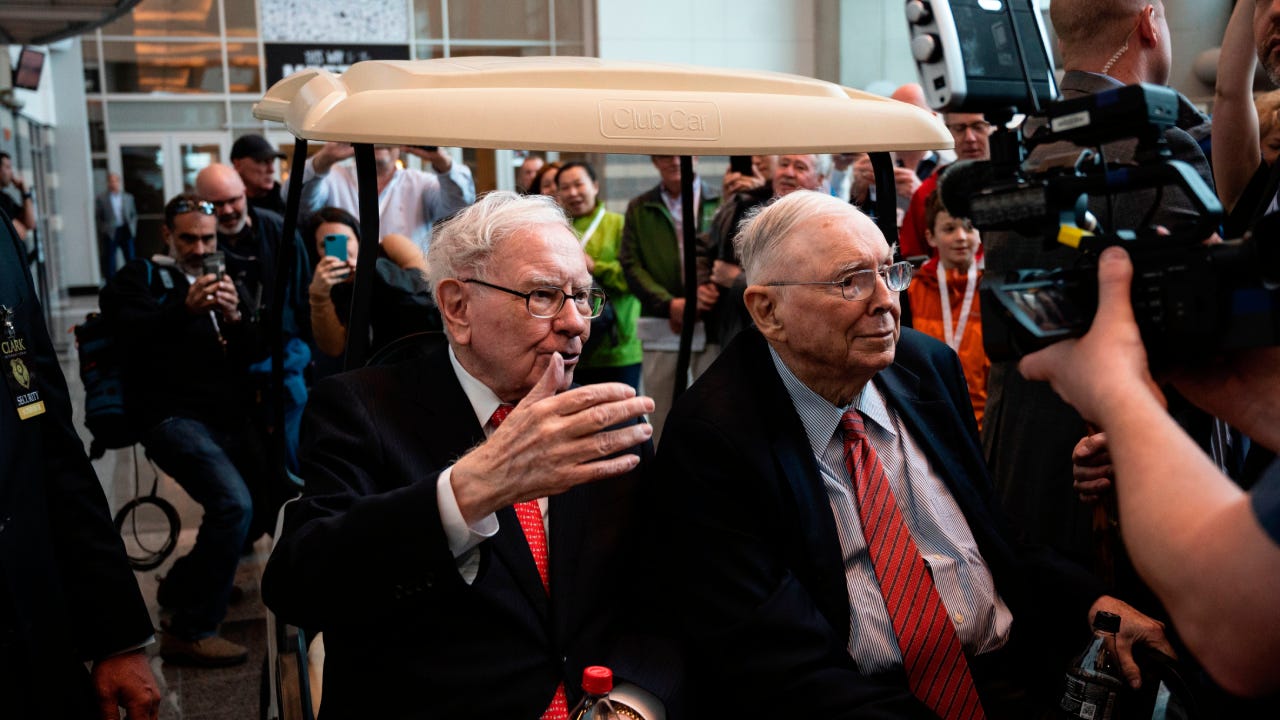What Warren Buffett thinks about AI and investing



The growth potential of artificial intelligence has investors excited, bidding up the stocks of AI leaders Nvidia, Microsoft, Alphabet and others throughout 2023 and into 2024. But what does arguably the world’s greatest investor Warren Buffett think about AI and its potential?
Here’s what Buffett and his late partner Charlie Munger have said about AI, and its impact on investing.
What Warren Buffett thinks about artificial intelligence
“I think it’s something I don’t understand at all,” Buffett told CNBC in an interview in April 2023.
Buffett said his friend, Microsoft founder Bill Gates, showed him ChatGPT and he was amazed by its capabilities.
“It’s read every book, every legal opinion – the amount of time it could save you if you were doing all kinds of things is unbelievable,” Buffett said. “I don’t really understand it – I think it’s an incredible technological advance in terms of showing what we can do, but I don’t know whether we know what happens.”
Buffett also joked that he hopes somebody “unplugs it” if it’s going to destroy humanity.
Former Google CEO Eric Schmidt has warned about the existential risks posed by AI, a concern that Buffett took note of.
“If it scares him, it scares me,” Buffett said.
Munger on artificial intelligence
Charlie Munger, who died in November 2023, was Buffett’s longtime partner and Berkshire Hathaway vice-chairman and was skeptical of the excitement surrounding artificial intelligence.
“I think artificial intelligence is very important, but there’s also a lot of crazy hype on the subject,” Munger said in February 2023. “Artificial intelligence is not going to cure cancer. It’s not going to do everything that we want done. And there’s a lot of nonsense in it, too.”
Buffett: Change is not an investor’s friend
When it comes to new technologies or fast-changing industries, Buffett often prefers to sit on the sidelines. He has occasionally been criticized for being slow to recognize the value of certain tech companies, though Berkshire Hathaway is now among the top shareholders in Apple.
“The key to investing is not assessing how much an industry is going to affect society, or how much it will grow, but rather determining the competitive advantage of any given company and, above all, the durability of that advantage,” Buffett wrote in 1999 as the tech bubble was near its peak.
Buffett has said that instead of looking for which companies will be boosted by new technologies, investors are often better served by looking for what won’t change at all.
“The internet isn’t going to change the way people chew gum,” Buffett told students in a 2001 lecture. “It isn’t going to change which gum they chew.”
New industries have come along throughout history that massively change society and how we live everyday, but Buffett says that doesn’t mean the industries will be rewarding for shareholders. Airlines and auto manufacturers are two examples of businesses that fundamentally changed the world, but have mostly disappointed investors.
Buffett once said that he likes to think that if he’d been at Kitty Hawk in 1903 when Orville Wright took flight, he’d have shot him down. “Karl Marx couldn’t have done as much damage to capitalists as Orville did,” Buffett said.
In response to a question at the 2023 Berkshire annual meeting about the impact of artificial intelligence on society and markets, Munger replied that he thinks “old-fashioned intelligence works pretty well.”
AI as an investing tool: What to watch out for
With the introduction of tools such as ChatGPT and Google’s Bard, investors may be eager to use AI in their investment decisions. These tools can be useful in generating answers to questions that would otherwise require you to sift through a lot of data.
You may be able to get quick overviews of businesses or industries and trends to watch out for. The AI models may also be able to quickly pull in various performance measures of different investments or asset classes, saving investors time and resources.
While these tools are designed to analyze enormous amounts of data, they’ll likely be less helpful when it comes to investment judgements. After all, the success of an investment depends on the future, which AI isn’t able to predict.
There can also be challenges with the accuracy of the answers generated by AI. Sometimes an AI model “hallucinates” and makes up information that isn’t true, even though it may sound entirely accurate. Investors will likely want to verify any information provided by these new tools before relying on them to make decisions. AI may be able to offer general investment advice in the way a financial advisor might, but it’s less likely to offer encouragement and wise counsel during market downturns, which is something the best financial advisors do.
Why we ask for feedback Your feedback helps us improve our content and services. It takes less than a minute to complete.
Your responses are anonymous and will only be used for improving our website.




